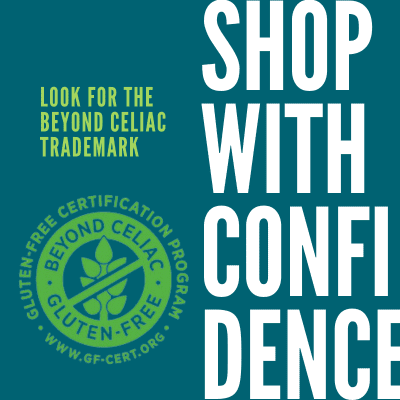National Foundation for Celiac Awareness Urges At-Risk Families to Test for Celiac Disease
| 4/20/2015 |
|
Media Contact: PHILADELPHIA (April 20, 2015) – In conjunction with Celiac Awareness Month in May, the National Foundation for Celiac Awareness (NFCA) has launched “Seriously, Celiac Disease,” the only national campaign dedicated to raising awareness among people with diagnosed celiac disease about the importance of having a serious conversation with relatives who may be genetically at-risk for the condition. The campaign was developed as a result of NFCA research that showed when at-risk relatives are properly educated about the condition and armed with the right tools, their receptivity to get screened for celiac disease increases. For the three million Americans with celiac disease – 83 percent of whom are undiagnosed – consuming the gluten protein found in wheat, barley and rye triggers an immune response that damages the nutrient-absorbing lining of the small intestine. Celiac disease has a variety of symptoms and can lead to certain types of cancer and other autoimmune diseases if mismanaged or untreated. However, most people with undiagnosed celiac disease don’t have any obvious signs or symptoms, and a simple blood test can help avoid some of the long-term disease complications. Additional diseases and conditions, including cancer, other autoimmune diseases and osteoporosis, can all manifest as a result of untreated celiac disease. For people with celiac disease, following a strict gluten-free diet is both medically necessary and the only treatment option to combat symptoms and prevent serious long-term complications. “Through our community’s experience, we know that most untested family members only want to have this serious conversation once, so it’s important to use the right information, in the right setting, using proven methods when talking to them,” said Alice Bast, President and CEO of NFCA. “By equipping individuals with the right tools to help their relatives understand the importance of formal diagnosis, NFCA hopes to have a major impact on the health and future of many families.” The “Seriously, Celiac Disease” campaign aims to encourage individuals with celiac disease to “Talk. Tell. Test. ” with their biological relatives using personal, one-on-one conversations: TALK to your family.
TELL them the facts.
Urge them to TEST.
“Celiac disease is genetically based, so it is more common in those with a family history of the condition, and having an autoimmune condition like celiac disease makes you more likely to develop other autoimmune diseases,” said Daniel A. Leffler, M.D., M.S., NFCA Scientific/Medical Advisory Council Member and Director of Research for The Celiac Center at Beth Israel Deaconess Medical Center in Boston. “Testing at-risk populations for celiac disease has been consistently shown to improve detection rates among family members and accurate diagnosis is vital to ensure that the disease is managed appropriately.”
Visit
People diagnosed with celiac disease typically have only one chance at discussing testing with their family. Because of this, NFCA encourages the community to share the video with others diagnosed and not directly with family members, as NFCA research has shown that a personal, one-on-one offline conversation is the most successful approach. People in the celiac disease community can follow the hashtag #TalkTellTest to join in the conversation with NFCA and others having similar experiences in helping their family members get tested. About the National Foundation for Celiac Awareness ### |


